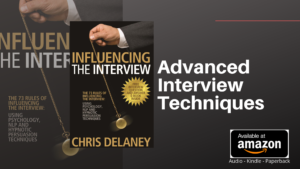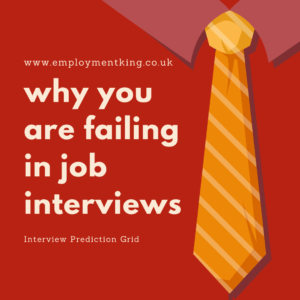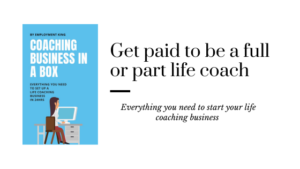12 Job Interview Questions and Answers for Greggs
This article will help you to prepare and to pass your next job interview in 3 separate ways.
1. You will learn over 10 common asked interview questions for your job position.
2. You will be given an explanation of the type of answer the interviewer is looking for ( a guide to what the employer wants you to discuss )
3. You will be given an example job interview answer for each individual interview question, allowing you to tweak this answer, making it relevant to your own experiences.
Job Interview Questions and Answers for Greggs
When applying for a job with Greggs you first have to complete an online application form – this takes around 30 minutes and is relatively easy to complete. Following this you will be asked to complete a Right Fit Quiz.
“Applying for Retail and Bakery roles will include a set of questions designed to assess how you respond in certain work situations. If you’re successful at this stage, you can then complete our Right Fit Quiz to help you decide if the role you are applying for is right for you. ”
Source
Successful applicants will then attend an interview and/or assessment day.
These 12 questions will help you prepare for your job interview
Job Interview Question 1:
“Tell me about yourself?”
One of the most common asked questions in interviews, normally asked at the beginning of an interview, this question gives you the opportunity to deliver a short statement about your experiences and skills relevant to the Greggs job position you are applying for.
-
- Start with a “selling” line that will highlight your main strength and/or achievement
- Keep each point brief as you can explain each point again in more detail throughout the interview
- You want to interest the interviewer and get them to want to know more about you
- End this answer with a reason why you’re looking for a new job
Potential Interview Answer
“I’ve been working in retail for 8 years. I enjoy the interactive and customer service part of my role. In all my roles I have used my personality to build relationships with customers which results in higher customer retention increasing profits. I have researched Greggs and I believe this is the opportunity I have been waiting to apply for”
Job Interview Question 2:
“Why did you leave your last job?”
Be positive with this answer and smile – employers like to hear that you left for a good opportunity or reason, a chance to do something special or for a good career move.
-
- Start the answer with a look back
- Explain what you enjoyed about your previous role
- Give a Positive reason for leaving
Potential Interview Answer
“I enjoyed working at Company Name and really enjoyed the interaction of working with a wide range of individuals-I feel I gained a lot of transferable skills from this experience, which I can use in this role. It was a hard choice to leave but I felt that this great opportunity is the next obvious step for me”
Job Interview Question 3:
“Why do you want this position with Greggs?”
Your research will pay off with this question; explain you have always wanted to work for Greggs and the reason why. Discuss how your goal has always been to work in this industry as you always wanted to (job criteria) and finally finish by explaining how your previous experience or qualifications will add value to the company.
Potential Interview Answer
“Since working in retail my goal has been to work for Greggs, as I believe my vision is in line with your company mission and values. I have always enjoyed baking and customer interaction and for me Greggs offers both of these. My long term goal is to work towards becoming a manager of a Greggs store”
Job Interview Question 4:
“Do you work well within a team?”
Some people are thrown when they are asked this question when they are applying for a position to work alone. Every company works as a team, so you are a good team player, give an example of when you have worked well within a team. Greggs are very keen on the team approach and you need to highlight how you are a team player in the Greggs interview.
Potential Interview Answer
“A team always works better than an individual as you have a wider skill base and more collective experiences to rely on. You also have the advantage of motivating to achieve goals and targets. Remember TEAM – Together Everyone Achieves More. In my last job, I worked as part of a small team dedicated to improve sales, by sharing all our experiences and ideas we were able to come up with an achievable action plan”
Job Interview Question 5:
“Did you get on well with your last manager?”
A dreaded question for many! When answering this question never give a negative answer. “I did not get on with my manager” or “The management did not run the business well” will show you in a negative light and reduce your chance of a job offer. Answer the question positively, emphasising that you have been looking for a career progression. Start by telling the interviewer what you gained from your last job
Potential Interview Answer
“I enjoyed my last job, I quickly learned how to multi-task and prioritize work and over the last 3 years I have seen myself grow. I am now ready to take the next step up the ladder with my career and feel I would suit working for company such as this”
If you were made redundant, let the interviewer know, this is not a negative!
Job Interview Question 6:
“How would you be an asset to Greggs?”
Think again about the job specification and the skills needed for this role. Have a paragraph prepared highlighting how you will be able to do the job and what you can bring to the team. It goes without saying that this paragraph should be positive.
Potential Interview Answer
“I’m the type of person who likes to get a task completed; I am driven, hard working and have excellent time management. I have worked in this industry for 5 years and I possess string customer service and team work skills, for me I feel my key skill is encouraging repeat customers.”
Job Interview Question 7:
“What are your strengths?”
Give an answer relevant to the skills and qualities relevant to the position you are applying to. The interviewer is trying to find if your strengths match the job. For example, if you are applying for a job where accuracy is an important issue (Greggs Management), one of your strengths could be that you have an eye for detail. It may useful to find different words to describe similar attributes and qualities in order to avoid repetition.
Potential Interview Answer
“I have often been told that I have an eye for detail and that I am very accurate and precise. This was very important during my last role where I managed a large retail team. An example of this is when I A, B and C….”
Job Interview Question 8:
“What are your weaknesses?”
Again, another commonly asked question. A frequent mistake to make when answering this question is to say something negative like “I can sometimes let things get on top of me”. Be positive and sell yourself with every interview question, turn a negative into a positive. For example,
Potential Interview Answer
“In the past I felt I needed to improve my product knowledge, to improve this I requested to attend a training course which taught my all I needed to know. From this I found that I increased sales and customer satisfaction.”
This will show that you can identify your weaknesses but at the same time, you are willing to improve. Most importantly: do not mention a weakness that is any way related to the job you are being interviewed for! This might sound obvious but it is a common mistake!
Job Interview Question 9:
“Do you know anything about this Greggs?”
Often one of the first questions you will be asked during the interview, employers want employees who will stay with the company, this question and answer will show the employer that you know the company’s history and feel they will be a good employer to work for.
It also shows the employer that you think ahead and carry out research. Answer this question with:
-
- The length the organisation has been operating for.
- What services/products the company offers
- Where they are going (have they won any new contracts)
- All this information is normally found on the internet; on the company home page or about us page.
Potential Interview Answer
“I know a great deal about your organisation, before I applied for the job position I researched the company. Greggs originally started by delivering yeast and eggs to local families before John Gregg opened a small bakery on Gosforth High Street in 1951. Following the death of his father, Ian Gregg took over the family business in 1964. Under Ian’s leadership, Greggs developed a reputation for good quality and great value by the 1970s there were shops in Scotland, Yorkshire and the North West.
By 1984, Greggs had more than 260 shops in four main areas of the country and continued to expand, opening shops in the Midlands, Wales and North London. Today, Greggs has nearly 1,700 shops. The reason for Greggs success is quality and the friendly faces you see behind the counter at Greggs, this was one of the reasons why I applied for the position”
Job Interview Question 10:
“Do you think you have enough experience?”
If you’re asked this, then the interviewer does not believe you have enough experience. If you have you need to make this clear, explain about your previous experiences and give detail to the parts that are relevant to this new job role.
If you do not have the experience they need, you need to show the employer you have the skills, qualities and knowledge that will make you equal to people with experience but not necessary the skills. It is also good to add how quick you can pick up the routine of a new job role.
Potential Interview Answer
“All together I have 8 years experience in this industry, in my current role as a sales assistant I am responsible for working in a busy shop, creating a warm and friendly experienced and ensuring that customers receive quality products. I possess excellent customer service skills and work well within a team, this is why I have been so successful in all my previous roles”
Job Interview Question 11:
What is your biggest achievement?
We have all achieved many things throughout our lives, from losing weight to passing a driving test. If you make your answer relevant to the job you are applying for. Talk about how you had a goal you initially thought you couldn’t achieve and then through working hard you achieved your goal.
Potential Interview Answer
“I was once asked to give a presentation, at first I thought I wouldn’t be able to deliver it without embarrassing myself. I wrote the presentation and practiced it in front of small groups, until I had the confidence to deliver it to a large group. I was really pleased with the result on the day and I was good feedback from my line manager.”
Job Interview Question 12:
“Do you have any questions for me?”
Good interview questions to ask interviewers at the end of the job interview include questions on the company growth or expansion, questions on personal development and training and questions on company values, staff retention and company achievements.
Conclusion
Once you have completed your interview Greggs will let you know the outcome often within 48 hrs.
Many people are afraid of job interviews. The truth is if you prepare for your job interview, by predicting the job interview questions, you can easily prepare your job interview answers. If your job interview answers highlight your unique selling point, are stated in the positive and are said in a confident manner, then you can influence the job interview to increase job offer.









